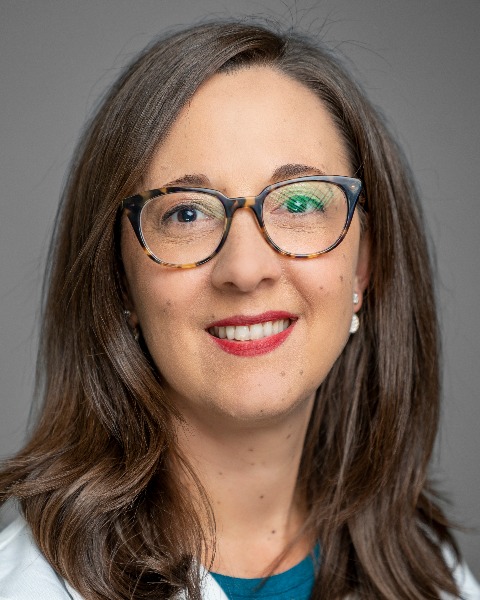Hospital Medicine 4: Medical Education
Session: Hospital Medicine 4: Medical Education
161 - Pediatric Hospital Medicine Graduated Fellows’ Perspectives on Autonomy Through Their Transition to Unsupervised Practice
Sunday, April 27, 2025
8:30am - 10:45am HST
Publication Number: 161.5704
Valerie Jurgens, Childrens National Hospital, Alexandria, VA, United States; Jamie Librizzi, University of Texas at Tyler, Tyler, TX, United States; Neha H. Shah, Children's National Hospital, Washington, DC, United States; Priti Bhansali, Children's National Health System, Millersville, MD, United States; Dorene F.. Balmer, University of Pennsylvania, Philadelphia, PA, United States; Jimmy B. Beck, Seattle Children's Hospital, Seattle, WA, United States

Valerie Jurgens, MD
Assistant Professor
Childrens National Hospital
Alexandria, Virginia, United States
Presenting Author(s)
Background: Pediatric hospital medicine (PHM) fellowship programs are relatively new, and many supervising physicians have no formal training on how to foster fellow autonomy. Although cross-sectional studies indicate that autonomy is valued by fellows, these studies are limited by relying on retrospective recall of training experiences and failing to capture the impact of autonomy on clinical practice.
Objective: Explore graduated PHM fellows’ perspectives on autonomy through the transition from fellowship to unsupervised practice.
Design/Methods: As part of a larger study of perspectives on autonomy during training, we recruited 14 first-year PHM fellows from 13 training programs in July 2021 to participate in a 3-year longitudinal qualitative study (Table 1). Using self-determination theory as a sensitizing framework, we conducted semi-structured, recursive interviews approximately every 6 months for a total of 84 interviews (4 interviews as fellows and 2 interviews as attendings). Interview transcripts were coded using an iterative coding process. Themes were generated by reviewing coded data and identifying common patterns in participant narratives.
Results: We identified four themes. (1) Regardless of the degree of autonomy fellows noted during training, nothing can replicate the weight of responsibility of being an attending. (2) Fellows noted a clear paradox, that they wanted autonomy as a fellow, but when they transitioned to the attending role, they had to prioritize providing autonomy to learners with providing safe patient care. (3) As graduated fellows were learning to promote autonomy as the attending physician, they noted that autonomy is to be earned not granted. (4) Despite spending limited time in the community setting and working overnight on their own as fellows, participants noted that the skills they learned in these rotations clearly helped prepare them for the transition to unsupervised practice. Each theme with a representative quotation are provided in Table 2.
Conclusion(s): Our findings highlight graduated fellows' evolving perspectives on autonomy through time emphasizing pivotal experiences in their progression to unsupervised practice and the challenges of providing autonomy to their learners once they are attendings. These findings may further inform how PHM fellowship curricula and faculty development initiatives can address promotion of autonomy in fellowship.
Table 1
.png) Demographic characteristics of the 14 participating PHM fellows
Demographic characteristics of the 14 participating PHM fellowsTable 2
.png) Themes illustrating graduated PHM fellows’ perspectives on autonomy
Themes illustrating graduated PHM fellows’ perspectives on autonomy
